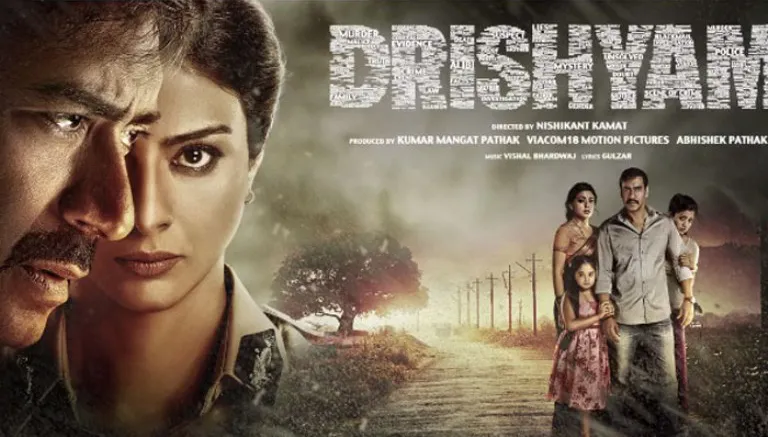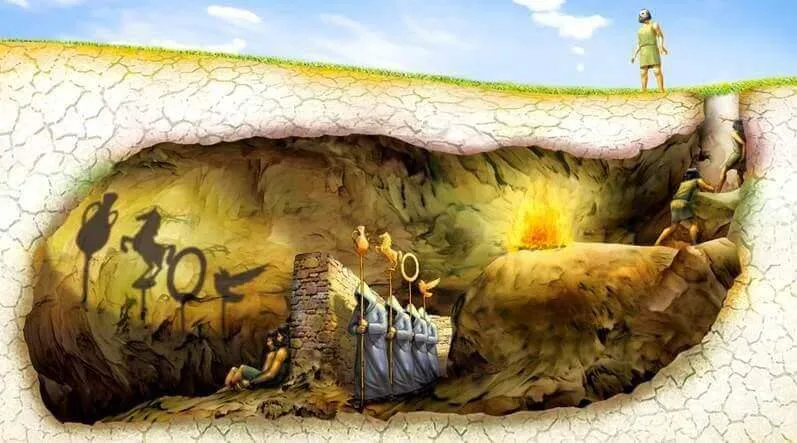
A gripping tale about Vijay who runs a tv and audio repair shop in a small village, got trapped in a criminal investigation of Sameer, the son of a rich powerful couple, who has been missing. A 2 hour 41 minutes which never bores. Each frame leads to another flawlessly.
At the beginning of the film, the shot zoom into his face sitting in a prison cell. Then it cuts while zooming out also from his face but in front of a desk watching a movie, at another place and time.
He loves watching movies. His runner boy suggested he do his own movie because he likes to comment a lot on them. To cover his track from the police, he unconsciously copies bits from the movies he watched. Without him realizing it, he not just make, but is living in his own movie.
 Montages showing transition from real to flashbacks. Present to past. Real into story. Film within film.
Montages showing transition from real to flashbacks. Present to past. Real into story. Film within film.
"Life is a movie and you are the director."
As the director, Vijay is brilliant at playing with events (montages). He knows when to hide and when to show. For example, the events of him digging and burying have been timed to fit his grand narrative - to save his family from execution.
"Life is a movie and you are also the protagonist."
It is the struggle of the lower class versus the upper class in India. The oppression coming from the hierarchy is almost unchallenged. But Vijay has played his game so well by taking bits and pieces from the movies he has watched.
Applying the Marx/Hegel dialectic into this, Vijay is with his Thesis from the Proletarian and Sameer parents from the Bourgeois with their Antithesis. The blooming of the Synthesis at the end is somewhat beautiful. The demolishing of the hierarchy and the Bourgeois's consent to stand on even ground. Sameer's parents talking to Vijay as mother and father instead of as the Inspector General and a millionaire. The ultimate payoff is when he buries justice right below those who claim to champion it. A Synthesis from a school dropout.
 Another excellent play of montages for the ending.
Another excellent play of montages for the ending.
I can't get off from being philosophical about the narrative, because to me it is the most obvious. I draw some parallels to Plato's Allegory of the Cave. During the historical beginning of motion pictures, stories and propaganda were being projected on the screen. Now, the addition of news that bears the tag of reality coming out from the same screen.
But with the events like 9-11 is said to be scripted, how can we tell? The line between reality and fantasy is getting blurrier and blurrier. And now with us being locked down in our "caves", the only connection we have to the outside world is through the screen. What is scarier, who is in control of what we see and how they want us to think and behave? Like how movies have shaped Vijay. Will we ever be able to walk out of the "cave" to see the "sun" one day?
But that is for another post.

